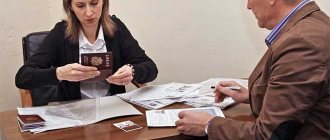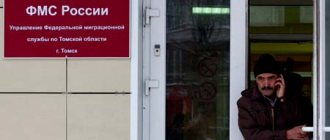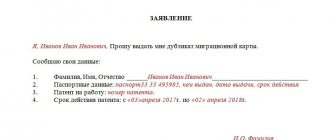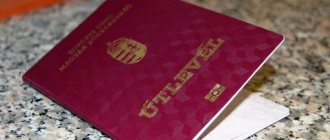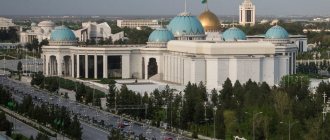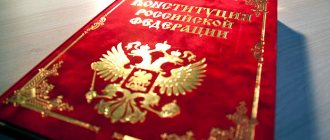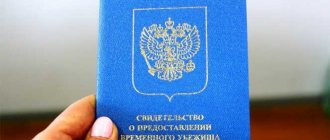Main points
The Federal Law on Citizenship of the Russian Federation contains principles and rules that control the legal relations associated with this status. In addition, it spells out all the points regarding the grounds, conditions for acquiring citizenship, obtaining it at birth and termination.
The Law on Citizenship of the Russian Federation, in turn, is regulated by:
- the Constitution of the state;
- international treaties between Russia and other countries;
- regulatory and legal acts of the country.
Citizenship of the Russian Federation is the legal connection of a resident with the state. It is expressed in the totality of the obligations of the rights of the parties relative to each other. In certain cases, a Russian may have dual citizenship, that is, be a citizen of two different states at the same time.
Required documents
The documentation package depends on the type of foreign citizen and the nature of the reason for using the expedited procedure.
| Article 14 paragraph | documentation | |
| 1a (for children, if the parent is a citizen of the Russian Federation) | Residence permit with a registration stamp at the place of residence; certificate of income, certificate of pension amount; a document stating that the applicant speaks Russian; birth certificate with a notarized translation; application for renunciation of previous citizenship (if there is no international agreement between countries on the possibility of dual citizenship); copy of parent's passport; certificates of divorce (conclusion), indicating a change of name with a notarized translation; state duty in the amount of 3,500 rubles; application for citizenship with reasons. | |
| 1b (for former citizens of the Soviet Socialist Republics) | residence permit; 4 photos; income certificate; a document confirming the renunciation of recent citizenship, including a receipt for payment of a written application to the consulate of another country; receipt, notarized translations of all identification documents. A birth certificate that was actually issued on the territory of the former RSFSR, USSR. | A birth certificate is recognized as a document issued in 1974. |
| 2b (marriage with a Russian citizen) | marriage certificate; Russian passport of the spouse; receipt of payment of state duty; residence permit; statement, photographs | Copies of documents are provided only with originals. |
| 2c (disabled foreigner whose children are citizens of the Russian Federation) | residence permit; income certificates; statement; birth certificate; disability certificate, pension certificate, certificates from medical experts indicating the poor state of health of the parent. | The age of a disabled citizen must be 65 years for a man and 60 years for a woman. |
| 2g (in the absence of a custodial parent) | Documents that can confirm the presence of Russian citizenship of the absent parent | |
| 2e | National passport; a notarized copy of the diploma and all attachments to it; certificate of state accreditation of a particular university; a certificate from the employer about paid contributions to the pension fund. |
We invite you to read: Further actions after obtaining Russian citizenship in 2021
The final composition of the package of documents for citizenship depends on the conditions and grounds for acquiring citizenship. Those who intend to use the simplified procedure may need to:
- application for admission;
- Residence permit, temporary residence permit, international passport;
- documents confirming their income and the legality of the source of their receipt;
- certificate of proficiency in Russian;
- birth certificate;
- a copy of the passport of the parent or child - a citizen of the Russian Federation;
- documents on disability or incapacity of children who are citizens of the Russian Federation;
- a diploma from a Russian university received after 2002;
- an extract from the Unified State Register of Individual Entrepreneurs - for entrepreneurs working in priority areas determined by the government;
- a copy of the receipt for payment of the state duty;
- other documents depending on the situation, specified in clauses 14-16 of the Regulations, approved. Presidential Decree No. 1325.
Basic terms and concepts
What concepts does the citizenship law contain:
- A foreign national is a person who is not a full citizen of the Russian Federation, since he belongs to another state.
- A stateless person is a resident of a country who does not have evidence of his belonging to the Russian Federation or another country.
- A child is a Russian (foreign national, stateless person) whose age has not reached 18 years.
- Residence is the legal presence of a person on the territory of the Russian Federation and beyond its borders.
- The territory of Russia is a region located within certain administrative and federal boundaries (in accordance with current legislation).
- The standard procedure for obtaining or terminating citizenship of the Russian Federation is to consider questions and applications from residents or guests of the country, as well as make decisions on them. In this case, the Federal Law on Citizenship of the Russian Federation is fully complied with, and the decision is made personally by the president.
- A simplified procedure for acquiring citizenship or, conversely, terminating citizenship is an option for considering applications from residents and guests of the country in a shorter time, at the level of the country’s municipality. To do this, the applicant must have certain grounds to qualify for preferential acquisition of Russian status. The final decision is made by the head of the migration service at the place of application.
- A residence permit is a document that confirms the legality of a specific person’s presence on the territory of Russia. It is issued to foreign nationals and stateless persons. In the second case, a residence permit replaces an identity card.
Article 14 paragraph 2
In accordance with paragraph 1 of Art. 14 Federal Law No. 62, non-citizens of the Russian Federation have the right to apply the simplified procedure:
- whose mother or father is a citizen of the Russian Federation and permanently resides in Russia;
- who previously had Soviet citizenship and until recently lived in one of the post-Soviet countries, without becoming its citizen and therefore remaining stateless.
These persons, if they are legally capable and have reached the age of majority, have the right to become Russian citizens without complying with the condition of mandatory obtaining a residence permit and continuous residence with it for a 5-year period.
In accordance with paragraph 2 of Art. 14 Federal Law No. 62, defines a wider list of persons who have the opportunity to become citizens of the Russian Federation without complying with the condition of a 5-year period of residence. These “beneficiaries” included foreigners:
- those born in the RSFSR and former Soviet citizens;
- living married to a citizen of the Russian Federation for at least 3 years;
- having adult capable children - citizens of the Russian Federation, while being disabled;
- having children who are citizens of the Russian Federation, if the second parent of such a child, who was a Russian citizen, died or went missing;
- having children recognized as incompetent - citizens of the Russian Federation, if the second parent of such a child, who was a Russian citizen, died or went missing;
- who received professional education in the Russian Federation after 2002 and worked in Russia for at least 3 years;
- carrying out business activities in certain areas established by the Government for at least 3 years;
- have invested and maintained investments in a Russian company for 3 years in the amount of at least 10% of its authorized capital, which must be at least 100 million rubles. At the same time, the company itself must pay at least 6 million rubles to the budget in the form of taxes and social contributions over the specified 3-year period;
- working for at least 3 years in positions included in the list of qualified specialists entitled to a simplified procedure, approved by Order of the Ministry of Labor No. 446n.
We suggest you familiarize yourself with: Apostille on a power of attorney - affix an apostille
In addition to these persons, the article also defines other categories of foreigners who receive simplifications. According to clause 2.1 of Art. 14 Federal Law No. 62, persons who have received the status of native speakers of the Russian language have the right not to comply with the requirements for mandatory residence with a residence permit.
If they have Ukrainian citizenship, they also do not need to officially renounce their Ukrainian passport. It is enough just to send an application to the Ukrainian Embassy in the Russian Federation.
For former Soviet citizens living in the Russian Federation and who are WWII veterans, the only requirement is the obligation to comply with the Constitution.
For participants in the state program for the resettlement of compatriots, in accordance with clause 8 of Art. 14 Federal Law No. 62, it is enough just to comply with the Constitution and give up your existing foreign passport.
Principles and rules
The citizenship law does not and cannot contain provisions that would limit the rights of nationals of the country based on religion, race or language. Regardless of how a citizen received the status of a Russian (by birth or through naturalization), no differences are provided for different categories, that is, they have equal rights and responsibilities.
If a citizen of the Russian Federation lives outside the country, this is not a basis for terminating his belonging to his country. The Law on Citizenship of the Russian Federation does not provide for the possibility of depriving a Russian of citizenship or limiting his rights to change his status. In addition, a Russian citizen cannot be deported or expelled from the country by force, even if he has committed an offense.
The government of the country has a positive attitude towards the desire of stateless persons living in Russia to become a citizen. Whether a person is a Russian or has previously held USSR citizenship is regulated by legislative acts of the Russian Federation (RSFSR, USSR) or agreements with other states (regarding citizenship or dual status of persons).
Points of the law for persons with dual status
Some residents of the state have not only Russian citizenship. The law regarding this category of persons establishes the following rules:
- Every Russian citizen who has a second citizenship is considered on the territory of the Russian Federation only as a citizen of this country. The only exceptions are persons who fall under international agreements. For example, Russia and Turkmenistan signed a dual status treaty, so Russians who have additional citizenship of Turkmenistan are officially recognized as dual citizens.
- The federal law on Russian citizenship does not prohibit nationals of the country from obtaining a passport of another state (that is, there is no need to renounce their previous status, and it cannot be forcibly taken away). However, it is important to remember that all Russians who undergo integration in another country are required to notify the migration department about obtaining citizenship of another state. If a minor receives a second passport, the official representative (parent, guardian, guardian) is responsible for it. Violation of this clause of the Constitution provides for administrative liability and a fine. An exception is made only for those who permanently live outside the Russian Federation.
Russian citizen status and civil status acts
Some people mistakenly believe that marrying a Russian citizen gives a foreigner an automatic right to receive a Russian passport. In fact, family ties are only one of the reasons for acquiring status under a simplified procedure, but only after three years of cohabitation.
If one of the spouses changes citizenship, the status of the other does not change. The official dissolution of a marriage does not change the affiliation of either former spouses or children born in a given family (or adopted) to a particular state.
Application procedure
To obtain a Russian passport under a simplified procedure, foreigners classified in the categories described above go through the following steps:
- Submit an application for admission using the form approved. By Presidential Decree No. 1325, to the territorial unit of the Main Department of Migration Affairs of the Ministry of Internal Affairs at the place of registration. Along with the application, a package of documents confirming the right to citizenship is submitted.
- They pay a state fee of 3.5 thousand rubles.
- Passes inspections by the Ministry of Internal Affairs, the FSB, and other government agencies to determine the existence of the right to citizenship and the absence of threats to state interests.
- They are waiting for the final decision to be made - the period for consideration of the issue, according to Art. 35 Federal Law No. 62, no more than six months.
- Receive the decision made in writing indicating the reasons that guided the authorized body.
The Russian Migration Division is carefully studying the list of foreign nationals who want to settle in the Russian Federation permanently. However, some categories have preferential rights.
Among them:
- Citizens who previously lived in the territory of the former USSR, RSFSR.
- Foreigners, capable citizens of other countries who have disabled parents or grandparents in Russia.
- A parent of Russian children, if the other parent is declared missing or deceased.
At birth
Anyone who was born on the territory of the USSR can safely be recognized as a newly made citizen of Russia. An important caveat: on the birth certificate of such people there is o. It is this case that is described in Section 2 of Article 14 of the Federal Law “On Citizenship” under paragraph a.
Marital union with a Russian citizen is welcome. Saving the marriage is important. For an accelerated procedure, you must be “in a registered relationship” for three years (clause 2b).
As you know, a child born on the territory of the Russian Federation from foreigners or in a mixed couple will be recognized as Russian by birth. He has the right to live anywhere in the world. But it happens that he remains in the care of one of his parents in Russia.
Life often makes its own adjustments to human destinies. It happens that a custodial parent in some situation cannot, for some reason, continue to raise children.
Examples of force majeure events:
- The father (mother) has been deprived of parental rights.
- The father (mother) received restrictions on parental rights.
- The custodial parent has become incapacitated.
- The parent has disappeared and is declared missing.
- The parent died (died).
Local executive bodies will help him with this.
For adult children
Adult Russian citizens may be declared legally incompetent due to disability. Their treatment, maintenance and care require the close attention of their parents, who, unlike the latter, remain legally competent persons.
Point E
Article 14 of the Federal Law on Citizenship concerns many people arriving from different states. Paragraph e specifically describes the mechanisms for obtaining Russian documents for students.
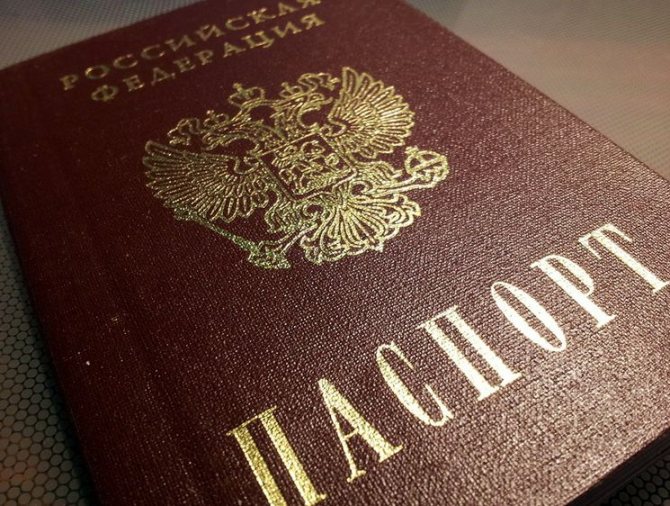
Such people with higher education can contribute to the accelerated development of the economy and an increase in performance in many industries. Therefore, the authorities are interested in ensuring that qualified personnel remain in Russia.
We suggest you read: Obtaining Russian citizenship after marriage
To do this you need:
- Complete successful training in the main programs taught in Russian universities.
- Study only in educational institutions that have state accreditation. Study in graduate school, master's degree, or strive to obtain a scientific degree.
- Work in scientific organizations in the Russian Federation.
- Work successfully after graduation.
After all, any employer is obliged, when employing a foreigner, to transfer part of the funds from wages to the Pension Fund.
Attention! An important condition of paragraph e of Article 14 is the payment of insurance contributions to the Pension Fund of the Russian Federation within a three-year period.
Look,
how to obtain Polish citizenship
.
Full responsibility of foreign citizens and stateless persons. Find it at the link.
Protection of Russians outside their home country
The Citizenship Law presupposes state protection for absolutely all Russians during their trips abroad. There are consulates, embassies and other representative offices of the Russian Federation in the territories of different countries. A Russian citizen can contact such an institution and count on the help and interaction of employees. Officials are obliged to ensure that the representative of the Russian Federation has the opportunity to use all their legal rights in full. If necessary, the consulate also protects the violated rights of Russians.
